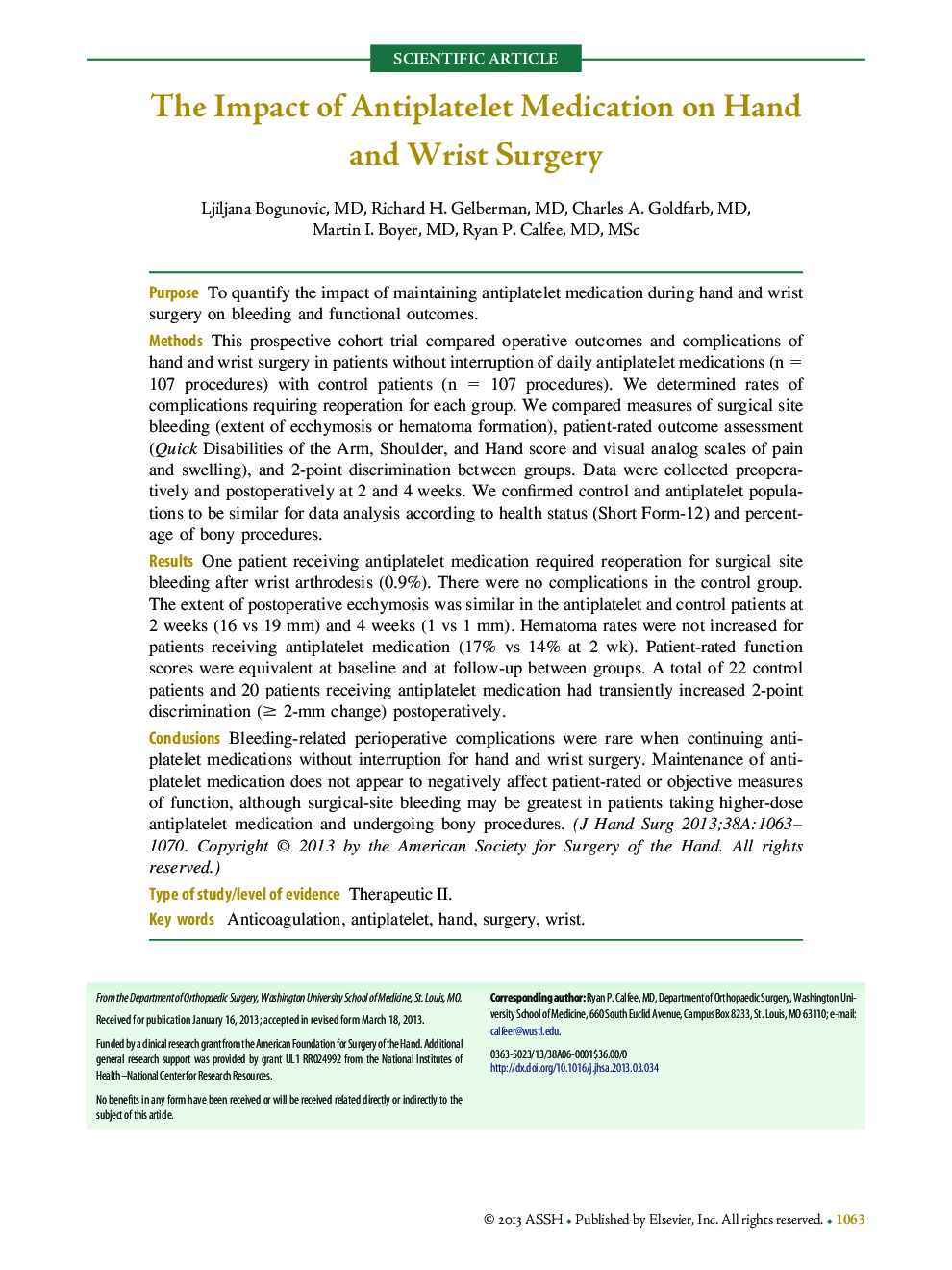| Article ID | Journal | Published Year | Pages | File Type |
|---|---|---|---|---|
| 4067847 | The Journal of Hand Surgery | 2013 | 8 Pages |
PurposeTo quantify the impact of maintaining antiplatelet medication during hand and wrist surgery on bleeding and functional outcomes.MethodsThis prospective cohort trial compared operative outcomes and complications of hand and wrist surgery in patients without interruption of daily antiplatelet medications (n = 107 procedures) with control patients (n = 107 procedures). We determined rates of complications requiring reoperation for each group. We compared measures of surgical site bleeding (extent of ecchymosis or hematoma formation), patient-rated outcome assessment (Quick Disabilities of the Arm, Shoulder, and Hand score and visual analog scales of pain and swelling), and 2-point discrimination between groups. Data were collected preoperatively and postoperatively at 2 and 4 weeks. We confirmed control and antiplatelet populations to be similar for data analysis according to health status (Short Form-12) and percentage of bony procedures.ResultsOne patient receiving antiplatelet medication required reoperation for surgical site bleeding after wrist arthrodesis (0.9%). There were no complications in the control group. The extent of postoperative ecchymosis was similar in the antiplatelet and control patients at 2 weeks (16 vs 19 mm) and 4 weeks (1 vs 1 mm). Hematoma rates were not increased for patients receiving antiplatelet medication (17% vs 14% at 2 wk). Patient-rated function scores were equivalent at baseline and at follow-up between groups. A total of 22 control patients and 20 patients receiving antiplatelet medication had transiently increased 2-point discrimination (≥ 2-mm change) postoperatively.ConclusionsBleeding-related perioperative complications were rare when continuing antiplatelet medications without interruption for hand and wrist surgery. Maintenance of antiplatelet medication does not appear to negatively affect patient-rated or objective measures of function, although surgical-site bleeding may be greatest in patients taking higher-dose antiplatelet medication and undergoing bony procedures.Type of study/level of evidenceTherapeutic II.
